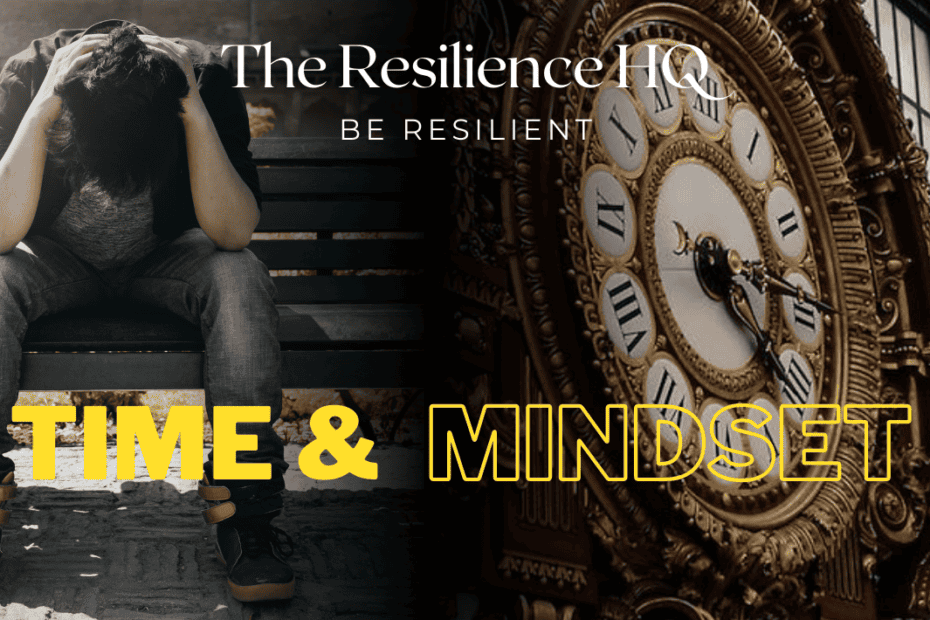Overcome challenges of life to grow and succeed. By mastering the art of dealing with difficulties, we gain a significant advantage. Although there may be a plethora of strategies to choose from, there is one critical approach that can solve most of our problems. Without implementing this strategy, even with access to abundant resources and assistance, overcoming challenging situations can be a daunting task.
I once saw a young man with autism who was struggling. He had left home despite mum’s concerns and moved in with a relative. He had not been to school consistently for a few years and did not know what to do.
He had looked for job and apprenticeship but was told he needed some qualifications. He was due to take GCSE exams but instead he sat at home smoking cigarettes and had drinking alcohol. I asked him about his plan but he seemed hopeless.
I suggested college to gain some qualifications but he rejected this idea. He could not give a single reason for this decision but had no alternate plan to get a job or to become independent in the future.
Expect to overcome challenges
To overcome challenges, our mindset can either help or hinder us. It is important to understand that difficult periods in life are inevitable, and becoming frustrated every time a problem arises may be a result of having unrealistic expectations. It’s essential to acknowledge that we will all encounter difficult situations, and how we choose to handle them will determine whether we emerge stronger or become stuck. These crises can be opportunities for growth and renewal, or they can reveal our deepest insecurities and weaknesses. Developing a resilient mindset involves overcoming challenges and emerging stronger from them.
> Read ‘What is resilience?‘
Overcome challenges: Recognition
The first step towards finding a solution is to acknowledge the challenge and put effort into dealing with it. It’s important to be aware of the difficult situation we are in, or else we cannot find solutions to it. Once we realise this, the next step is to determine how to respond to these circumstances. To accomplish this, we need to understand the different ways this crisis is likely to impact us.
Overcome challenges: Time factor
During difficult times, time can either be our ally or our enemy. It’s crucial to recognize the problem as early as possible so that we can find a solution and prevent the problem from worsening. Delaying the recognition of the problem will only make it harder to overcome. Therefore, time plays a critical role in dealing with difficulties.
Consider the wise advice of “stop digging when you’re in a hole”. The sooner we realize we’re in a hole, the easier it will be to climb out. This means that the hole will be shallow, and we can get out of it quickly. However, if we only come to this realization after a long time, we’ll find ourselves in a very deep hole. Climbing out will take a lot more time and effort.
It can therefore be argued that the first steps in dealing with problems are recognition of being in difficulty and the need to do so as early as possible.
“This hole may seem deep, but the sooner we put down the shovel, the sooner we’ll climb out with ease.”
Self-help or external help
When faced with challenges, we have two attitudes to choose from. The first is accepting the situation and taking ownership of finding a way out. The second attitude is to rely on someone else to solve the problem for us. However, this approach is not always effective as the person we rely on might not appear or may not be able to help. Moreover, as time passes, the situation may worsen, making it even more difficult to resolve. Therefore, it is important to avoid relying on others and take charge of finding solutions ourselves to ensure timely and effective resolution of difficulties.
What if the person we are counting on for help arrives after a long time and, due to the delay in receiving assistance, they are unable to help us? This scenario would undoubtedly turn into a miserable and hopeless situation. On the other hand, we can take ownership and start taking action to deal with the problem as soon as we recognise the situation. By doing so, we can limit the problem from getting worse. If our own efforts are insufficient to deal with the problem, they will, at the very least, stop the situation from deteriorating further.
If we can’t solve a problem despite our best efforts, it’s better to ask for help. Others are more likely to help if they know we’ve already tried to solve the issue on our own. By the time we ask for help, the problem will have become less severe. This makes it easier for others to provide effective assistance.
Confidence & independence
If we are able to handle a challenge on our own, it can boost our self-confidence and self-reliance for the future. However, seeking external help when needed should not make us feel ashamed or guilty, but rather resourceful. These problem-solving methods become habits that shape our future attitudes.
Let’s revisit the example of the hole. If we have a mindset of relying on others to solve our problems, even if someone provides a ladder to get out of the hole, we may still refuse to climb out. We might expect someone else to carry us up the ladder and out of the hole instead.
Although there may be people who offer assistance by sending down a ladder, not many will be willing to go so far as to carry us out of the hole. Even with the help of others, we might find ourselves stuck in the hole if we adopt a passive and helpless attitude. This can lead to a hopeless situation that is difficult to escape from.

Conclusion
Believe in yourself! I’m convinced that the most crucial factor in overcoming difficulties is to prioritise self-help. We need to have the mindset that we’ll do everything within our power to solve our problems before seeking external assistance. Although we can ask for help from others, it’s essential to take complete ownership of our difficulties and commit to helping ourselves.
Additionally, we must develop the ability to recognise early warning signs when things are not going as planned. Neglecting early warning signs of problems can be detrimental, as time can either work for or against us, depending on how quickly we acknowledge our situation. The next critical step is to accept our challenging situation, which will enable us to evaluate and address the problem effectively. Once these foundations for overcoming challenges have been laid, we can focus on specific problem-solving strategies.
Consider the earlier example of the young man. Can you see what strategy he was using to deal with his difficulties? What strategy would you employ in similar situation?
Putting it into action
- Remember that challenges are an inevitable part of life and we must all face them. In fact, it is precisely these difficulties that can help us become more resilient.
- Focus on attitude to challenges. It is our attitude that determines whether we grow from the crisis or regress.
- Learn from your past. Reflect on your past difficulties and try to understand what were the early warning signs of the trouble that was heading your way. This will give you an advantage of the time factor.
- Be prepared with a plan. Patterns in life repeat themselves. Write down what was helpful and unhelpful in the past when dealing with challenging situations. Make a list of difficult situations you have faced or expect to face in the near future.
- Write down different ways you can deal with your unwanted emotions or thoughts if you face the same difficulty as before.
Prepare for the future
Reflect on the past challenges and write down:
- What are the difficulties you are likely to face in the near future?
- What could be early warning signs to give you advantage of the time factor?
- What can you do to help yourself in dealing with this difficulty (emotions, thoughts and actions)?
- Who could you ask for help and at what point will you ask?
Other Resources
- Tool kit for overcoming challenges by Mind
- How to overcome challenges in workplace
- Learn Problem-Solving to Overcome Challenges with 10 Simple Steps
